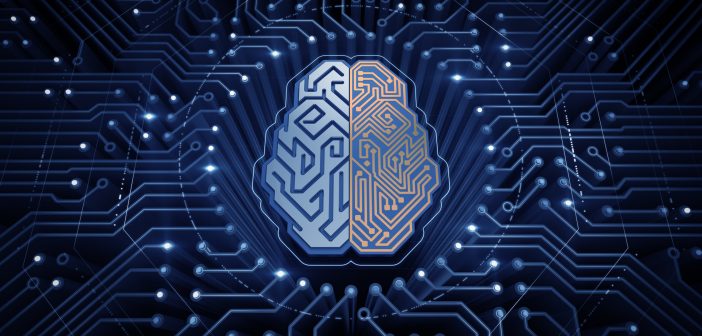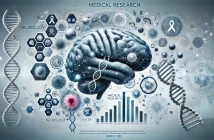The applications of AI in healthcare are numerous and diverse. Artificial Intelligence and Machine Learning are two of the biggest technology trends that the world is witnessing at this moment. Microsoft’s announcement of the Healthcare NExT initiative is a harbinger of that, and marks the tech giant’s entry into cancer research.
In its press events, Corporate Vice President of Microsoft Healthcare NExt, Peter Lee said
“(Tackling healthcare problems) is a bigger challenge. But we believe technology – specifically the cloud, AI and collaboration and business optimization tools – will be central to healthcare transformation.”
Another patron at the tech biggie, Chris Bishop, further explained how healthcare is different compared to other industries, and that defeating cancer is this era’s biggest dilemma. Hence, the head honchos at Microsoft feel that applying technologies like Machine Learning and AI in healthcare is imperative for a smarter healthcare transformation.
Reviews of the current healthcare systems in various countries point misdiagnoses and delayed treatments to be the most immediate concerns. Microsoft plans to utilize machine learning systems, cloud storage and business optimization tools to fix these fundamental problems at healthcare facilities. It also looks forward to advancing its role in cancer treatment research, using out-of-the-box approaches. Microsoft’s experts believe that cancer can be treated in a similar fashion as computer viruses or software glitches are removed.
These developments lead us to believe that AI in healthcare will become the largest arena of innovation. Even some recently held international conferences in AI and ML across the United States, China, highlighted how a gigantic digital healthcare revamp is imminent.
Why AI in Healthcare Matters
It’s no secret that medical research is the most critical area where the data generated is enormous and of the highest value. So, the need for highest efficient data handling systems isn’t surprising, considering not just patient safety and compliance norms but also for the efficient management of clinical trials and emergency cases. Hospitals, research organizations and healthcare aid societies are aware of the various ways in which AI can change the face of healthcare, inside organizations as well as outside. However, it is surprising to note is that only few healthcare agencies are openly integrating Machine Learning and AI into their systems.
The massive overhaul of healthcare systems that AI can bring in such a short span of time is commonly spoken about but not yet witnessed in reality. The computational power of AI is important for healthcare organizations to notice, for it’s the only field that is lagging behind. There is a need for healthcare professionals to openly discuss all the dimensions in which AI and ML can help reduce mishaps, such as increased accuracy in data entries without human intervention, monitor in-patient stats for critically ill patients, etc.
1. More Data = More Power
Some of the healthcare verticals where machine learning can bring remarkable changes include visualization of enormous laboratory test records for faster and accurate diagnoses and studying the patterns of patient data to better understand disease prognosis. This will improve the efficacy of clinical trials and save a lot of time for healthcare providers, as McKinsey Inc. reported recently. This means more clinical research studies will be utilized, more data visualization tools will be developed and more data cloud management tools will be needed.
This also indicates the need for better automation of clinical data handling systems, which will save a lot of expenses for pharma companies, hospitals, care centres and clinical research organizations. The reason for the improved accuracy and speed is that machine learning incrementally works better. The more clinical data that’s fed into the system, more accurate is the diagnosis. Once patient data handling systems are automated, machine learning systems can be incorporated and healthcare organizations will definitely have smoother processes.
2. Better Predictability of Sudden Health Adversities
Artificial Intelligence aids in understanding diseases better, analyzing patient-specific disease characteristics and gauging the course of treatment and its effectiveness. it is a powerful tool to monitor disease progression through set parameters. One of the surprising areas of machine learning research is studying heart diseases. Scientists are currently exploring the risk factors for degenerative heart diseases, including predictions of heart attacks using available machine learning tactics.
A group of scientists at the University of Nottingham in the United Kingdom are collaborating with cardiologists at Carnegie Mellon University to study AI algorithms for predicting the occurrence of heart attacks. Their sample data consist of patients with and without cardiologic medicine prescriptions. They are proposing new theories to indicate the risk factors for cardiac arrests outside the usual list of parameters, such as age and previous heart disease diagnosis. Such a groundbreaking study would be detrimental in the issuing of drugs to varying patient populations and also decide how drug dosages are monitored.
Data modelling methods with AI integration can also be applied to studying course of disease in case of infectious diseases, HIV-AIDS and cancer, among others. In fact, psychiatrists are also relying on AI systems for mental disease diagnosis and prognosis. AI helps study behavioural patterns and correlate the results with reports of brain functioning, locational MRI plates and cell ageing patterns to determine what kind of neurodegenerative diseases are forthcoming in patients.
3. AI Will Reduce Gaps in Health Communication
The fact that Artificial Intelligence itself developed out of the vastness of Big Data is overwhelming and the way data of humans is expanding, AI and ML seem to be the obvious choice to fully use these data. AI engineers are more involved in creating better tools to visualize medical data now than ever before and the results are of most use in behavioural science. In fact, at a recent conference, it was concluded that by 2018, over 30% of physicians will run cognitive analytics tools on patient data before correlating medical records per patient with laboratory data.
Undoubtedly, AI has proved to be the tool that can change the way data flows inside healthcare systems, how these data are applied by providers and speed up key steps in diagnosing cancer. A group of scientists concluded that Machine Learning is the most powerful tool to predict the occurrence of cancers in humans whose CT and MRI data already show sizable lesions. The fatal disease monitoring protocols contain that early diagnosis is key; if the least amount of effort can be used to predict tumours early, machine learning can easily become the order of the day for aiding cancer diagnosis. Machine learning functions in concert with conventional diagnostic instruments can be utilized for better visualization of cancer progression and functioning of nuclear machinery. But the point where ML creates the effect is on the applicability of data without any time-lags. Healthcare systems need this efficiency, they need this exponential rise in user-friendliness and ease of communication and Artificial Intelligence is by far, the most effective way to achieve that.
A New Beginning For Healthcare
Not too long ago, Artificial Intelligence was touted as the new horizon of technology and the zenith of information processing efficiency, but now AI is definitely much more than that. Since the emergence of a full-blown AI system in 2010 — IBM Watson to this year’s Healthcare NExT, AI’s significance has had a meteoric rise. The intelligence and effectiveness of this technology essentially mark evidence of the fact that AI in healthcare has a bright future ahead. Today, IBM Watson integrates genomics and oncology solutions in its interface that are applied to accelerate access to better healthcare by being the most powerful and efficient communication bridge. It helps patient access clinical knowledge and information more interactively. It has increased sensitivity to patient concerns, improved on understanding relevance and has reduced information processing speeds to a tenth of a millionth second.
Prevalent market research firms, like Frost and Sullivan, have predicted the high-speed expansion of AI systems in healthcare even for small and medium enterprises. Even Microsoft’s Lee recent statement seconds that, as Microsoft aims to “help each human and company experience the most groundbreaking AI solutions” to have a healthier future. Bernard Marr, the Forbes Contributor of Health, wrote “From liver disease to cancer and even psychosis and Schizophrenia, AI algorithms are changing the game in terms of disease diagnosis. ” Hence, it is not too far a time when we interact with bots to know the status of physician appointments at a clinic nearby and even medical students operate machine learning systems to complete small tasks inside the OT. So medical students will learn more about data sciences and engineers will code more for evolved machine learning systems, most importantly!
Well, we’re just getting started!
______________________
Need to consult an AI or healthcare expert? Get in touch with a PhD-qualified scientist on Kolabtree.








1 Comment
Informative Read, AI has caused tremendous waves in every field that it has touched and the healthcare sector is no different.